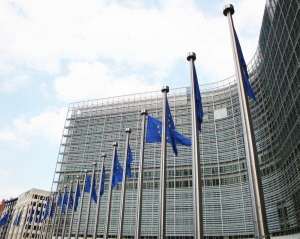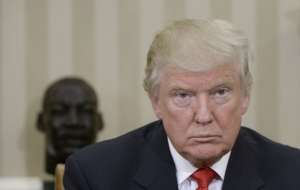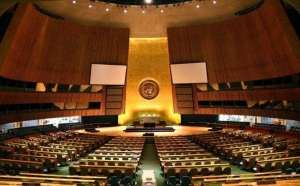• Interview with PSD senator PSD Valer Marian the vice-president of the Commission for investigating abuse, fighting corruption and for petitions
Reporter: Mr. Senator Valer Marian, the recent interventions of the customs are shocking both in terms of size, and of their spectacular nature. But how long have we been faced with corruption and contraband on the borders?
Valer Marian: The first mentions of the corruption and contraband in the customs go back to the biblical texts, where customs officers and usurers are mentioned. In Romania, the two phenomena were present during the communist regime as well. Not even that oppressive political regime was successful in completely eradicating them.
Corruption and contraband have always existed in the customs, under all the post-revolution governments, but paradoxically, they expanded after the accession to the EU. Unfortunately we have to the level where the system is completely gangrened, just when we were about to enter the Schengen space.
Reporter: How do you explain that coincidence?
Valer Marian: After the accession to the EU, Romania became the main gateway after the accession to the EU, the main gateway for the entry of illegal products coming in from the Western countries. Through our geographical position, and I am including our access to the Black Sea, the cross border smuggling networks have focused their activity on the territory of Romania. Corruption and contraband are also influenced by the fact that we have three countries that aren"t members of the European Community as neighbors - Ukraine, the Republic of Moldova and Serbia, countries where huge quantities of contraband products are made, and which are then sent over here, cigarettes in particular.
Reporter: How does the illicit trade go? How much does it cost to get a truck loaded with cigarettes through the customs?
Valer Marian: Let"s take the case of Ukraine. Contraband goods coming from that country (in particular cigarettes) enter Romania through the customs of Halmeu. It has come so far that they are brought in by trailers or by train. In the customs, it can cost as much as 100,000 Euros for a single trailer. In exchange for that money, often times the trailers loaded with smuggled cigarettes were accompanied by jeeps of the Border Patrol, which were driving in front of them, to avoid the risk of having the shipment being pulled over by some "clueless" cop.
Reporter: Aside from shipping these products by road, what other methods do the smugglers use to get their merchandise into the country?
Valer Marian: Their methods are varied. Some of the smugglers are unsophisticated - they are carrying cigarettes in carts pulled by horses or by donkeys, on bikes or even by foot on their back. Others are very sophisticated - there were cases where cigarettes were introduced in the country with remote controlled mini-helicopters, which could carry a maximum load of 10 kg.
Reporter: PSD deputy Marian Săniuţă last year said that the General Inspectorate of the Border Police (IGPG) acquired red cars, and gave up using traditional camouflage colors.
It"s like putting a bell on the cat.
What is actually happening in the Romanian border crossing points?
Valer Marian: What Mr. Marian Săniuţă recounted is perfectly true. What"s more, there were some situations in the past, where the cross-border networks that I was telling you about proved to be far better equipped than our border patrols. There were cases where the smugglers had thermal vision devices and stronger off-road cars, which proved their efficiency, whereas the devices or the cars of the policemen were "disabled".
Reporter: What is the usual destination of contraband cigarettes?
Valer Marian: Part of them are sold in Romania. Important volumes also reach the Schengen space, in countries such as France, Germany, Hungary or Austria.
Romania serves a double purpose when it comes to these countries: it is a gateway for the entry of contraband products and the country where the goods are laundered and get their paper in order.
There are situations where the work is even done on "barter": in exchange for contraband cigarettes delivered to Western countries, the trucks come back loaded with coffee, luxury goods or other, higher quality types of cigarettes.
Reporter: Is it true that, recently the contraband networks are starting to take up drug trafficking?
Valer Marian: Aside from cigarettes, the branches have also brought other kinds of goods into the country such as fruit and vegetables, equipment, etc. The case of the fictitious import of Chinese garlic of the customs of Halmeu, which was revealed by the OLAF, in which the Romanian state lost over 2 million Euros. What is really becoming a cause for concern is the fact that these networks have lately begun getting involved in drug traffic, in cooperation with the criminal networks of Italy and South America. These are high risk drugs, not merely the so-called "ethnobotanic" drugs, and they come into the country hidden inside vehicles which are hard to check, such as bulldozers or excavators.
Reporter: Mr. Valer Marian, you were a prosecutor and a prefect in the county of Satu Mare, but, as a senator, you are well known for your concern with fighting contraband; what is your reason for this?
Valer Marian: This phenomenon concerns me because I come from a county that has been overtaken by this phenomenon, by the extent that it has reached over the past few years. Contraband cigarettes have reached every store and every restaurant in the villages and all the markets in the cities. It has come to the point where they ask you without any shame: "Do you want stamped or unstamped cigarettes?". They even sell contraband cigarettes in the forest. It is incredible!
Reporter: Could you give us an example of a cross border network that operates on Romania"s territory?
Valer Marian: I want to emphasize that I am the first senator that filed an query on the issue of cigarettes during the current legislature, in March 2009, titled "Unprecedented cigarette contraband in the county of Satu Mare". We have shown that in the north-western area of the country there was a very dangerous network that operated in several countries, made up of Romanian, Ukrainian and Hungarian criminals, which was developed with the complicity of several servants of the Romanian state.
Reporter: Could you give us some names?
Valer Marian: In the county of Satu Mare, the network that I am talking about was led by Doru Tucaci, K1 fighter, which had been convicted for robbery, rape and recently arrested in Hunedoara for contraband with equipment brought in from the EU. In Hungary, the head of the network was a very dangerous criminal, Laszlo Bodo, arrested and convicted for paid murder. In Ukraine, the network was led by two men: a Ukrainian citizen of Romanian origin, who had two aliases: Opriş Ivan when entering the country through the Halmeu customs and Ioan Pătraş, when he used to enter the country through the Sighet customs, and by an Ukrainian citizen, called Udud Ivan, nicknamed "the Cripple", who was a former member of the Russian special troops of Afghanistan, the Spetnaz.
Reporter: Did the network that you are talking about operate with the complicity of the Romanian authorities?
Valer Marian: The contraband cigarettes brought in by this network entered all the villages and cities of the county of Satu Mare, under the lenient - that"s not to call them stupid outright - eyes of the policemen. The activity of the network was well known, even the Romanian secret services knew about it. Even though the secret services did their job and submitted numerous reports to the authorities, the people in charge took no steps against the network. In reality, the smugglers were protected and even guided by some of the local and central bosses of the Border Police, as well as by some of the heads of the secret service of the Ministry of Administration and Internal Affairs (DGIPI).
Reporter: Is there any evidence of the complicity of some state officials?
Valer Marian: Let me give you an example: the head of the Inspectorate of the County of Satu Mare of the Border Police, Vasile Maxim. He was monitored by one of the secret services for having a meeting in Hungary, in company of one of the smugglers of the county of Satu Mare, with two of the heads of the cross-border network that I was talking about, Bodo Laszlo and Opriş Ivan. No action was taken against him. Also, I showed in the past, that the very coordinator of this network may have been an intelligence officer, Remus Span, codenamed "The emperor".
Reporter: Can you name some people that took action against this network?
Valer Marian: There are lot of people of good faith who fought against the network, but their efforts were annihilated by the pressure of the politicians.
Let me give you an example.
Prosecutor Sântion, the former head of the General Anticorruption Department (DGA), who tried to dismantle this network, was dishonorably discharged by the former minister of Internal Affairs, Vasile Blaga. Blaga dismissed Sântion and, strangely enough, hired Remus Span as his personal advisor. Until Span was removed from the system, he had a hugely successful career, getting to be the head of the DGIPI Maramureş and of the DGIPI Satu Mare, head of the Judicial Police of the National Anticorruption Department, deputy director of the General Anticorruption Department, head of the wiretapping department of the DGIPI and substitute to the head of the General Inspectorate of the Border Police.
Reporter: So, where does the money from the contraband go to?
Valer Marian: The money from contraband follows the pyramid all the way to the highest levels of the state. All the clues point to the top officials of the Border Police, the DGIPI, the Ministry of Administration and Internal Affairs, the national Customs Authority (ANV) and the National Tax Administration (ANAF). In my opinion, right now, the prime suspects are Radu Mărginean, who was the head o the ANV until last week, and the chairman of the ANAF, Sorin Blejnar.
Reporter: Do you have any proof of this?
Valer Marian: Sorin Blejnar, in his quality of head of the National Tax Administration (ANAF), is being investigated by the prosecutor"s office of the Court of Constanţa for involvement in cigarette and diesel oil contraband and is targeted in the case of the National Anticorruption Department of Constanţa concerning the reimbursement of VAT amounting to 60 million Euros, which led to the arrest of Lebanese businessman Said Baaklini, of two formers directors of UCM Reşiţa and the director of the Administration of Maritime Ports of Constanţa. There are also voices that claim that Sorin Blejnar is involved in the bribery case of the Halmeu Customs. Blejnar is the one that signed, upon the proposal of Radu Mărginean, the temporary appointment as head of the customs of Nicoleta Dobrescu, without any testing, based on a formal interview that was not advertised in advance. Later, after Nicoleta Dobrescu failed to pay the remain 300,000 Euros, Blejnar appointed Gheorghe Ţârlea, abrought in from the Moraviţa customs and known as being close to the mayor of Arad. The anticorruption prosecutors showed that the money that was received from the former head of the Halmeu customs (130,000 Euros) were requested on behalf of a political party. According to my information, the money ended up in the accounts of PDL for the electoral campaign of president Băsescu of 2009.
Reporter: You presented several connections between the head of the ANAF and the local leaders of the PDL...
Valer Marian: Sorin Blejnar was promoted and is protected by Gheorghe Falcă, the mayor of Arad (and the godson of Traian Băsescu). Sorin Blejnar, Gheorghe Falcă and Traian Igaş, the minister of Administration and Internal Affairs, had connections with two other "strong players".
The first "strong player" is the head of the Timişoara Regional Customs Department, Aurel Mătiuţ, who was backed by the group the Mayor of Arad, Gheorghe Falcă. Against Mătiuţ, the prosecutors of DIICOT Timişoara began prosecution on January 13th, 2011, accusing him that, in association with four other customs officers, have allowed the entry of two trucks carrying 36,000 cigarette packs smuggled from Serbia.
The second "strong player" is the head of the County Inspectorate of the Arad Border Police, questor Ion Handra. Handra was promoted to the rank of police questor by president Traian Băsescu, at the proposal of the minister of Internal Affairs Traian Igaş, by way of a presidential decree of November 29th, 2010, even though, in 2002, during the PSD government, Handra had been dismissed from his position as head of the Border Police of Nădlac in the county of Arad, for involvement in cigarette smuggling, after the Romanian authorities received evidence from the Hungarian authorities. The prosecutors now have the opportunity of proving that they are not the puppets of president Traian Băsescu and of his camarilla.
Reporter: You"ve even accused minister Traian Igaş of being involved in cigarette contraband in the past...
Valer Marian: I showed that there were clues and even evidence which lead to minister Traian Igaş. Furthermore, one of his friends, a businessman of the town of Pecica, owns two duty-free shops in the Moraviţa customs and two others in the Curtici free area, who owns 8 trucks and 20 Iveco minivans and also owns some horse stables of the former Timpuri Noi Agricultural Production Cooperative of Pecica, where contraband cigarettes are allegedly stored.
Reporter: Do you have information on other ministers that may have had anything to do with this phenomenon?
Valer Marian: I"ll give you another example: after becoming the Minister of Finance in the DA Alliance, Sebastian Vlădescu, hired Mrs. Cornelia Nagy, who was a former employee and head of the Petea Customs between 1991 and 1999, as chief of his cabinet. She was dismissed from the customs for being involved in contraband and after the secret services found in the car of her husband, Ferdinand Nagy, who until recently was a subsecretary of state in the Ministry of Foreign Affairs, certain documents that concerned national security that he was going to get across into Hungary. Mrs. Nagy was later promoted as general director in the Ministry of Public Finance, in the Public Procurement Department, and has very tight relationships with a director of the ANAF.
Reporter: The relationship between Mr. Vlădescu and Blejnar wasn"t exactly warm...
Valer Marian: That is true. Concerning Sebastian Vlădescu I"ve heard that he once confessed that president Traian Băsescu once told him: "I have a big request, lay off Sorin (ed. note: Sorin Blejnar)!" Even though his relationship with Blejnar wasn"t one of the best, since Blejnar kept his job during the tenure of Vlădescu, this must mean that he acknowledged the wish of the president and left Blejnar alone. On the other hand, you must know that Blejnar is the most powerful man in the Ministry of Finance. Controls the entire financial and information stream. I am now asking the prosecutors to stop laying off "Sorin".
Reporter: Without support from the political arena, would contraband and corruption in the customs have reached such amplitude that made it a topic discussed by the Romanian Supreme Defense Council?
Valer Marian: No, obviously not. All the appointments were made politically. All the governments wanted to have control of the customs because they were important sources of funding for electoral campaigns. As to what concerns the Romanian Supreme Defense Council, this phenomenon has become a matter of national security because of its extent.
Reporter: There are voices claiming that behind the raids on the customs there is a political reckoning. Why did these investigations begin just now, when there was plenty of information available about these deeds as early back as the summer of 2010?
Valer Marian: These raids were launched now because the authorities had to do something after the accession to the Schengen space was postponed. It was probably intended as last minute PR stunt, that would look good in the eyes of the population and of the reticent EU governments. Of course those customs raids could have begun earlier, because information that undercover officers had been placed there since last summer. I wonder why did they wait until now to get busy?
Reporter: Why would it have to be a political reckoning?
Valer Marian: Precisely because the raids took place very late, when the accession to the Schengen space had been compromised. And second of all, in May the Congress of the PDL will take place in May, and that"s when the party will hold the elections for a new leadership. In my opinion, the reckoning is taking place between two factions: one of the former minister of Internal Affairs Vasile Blaga, who is a very likely candidate for the presidency of the PDL, who was influential in the customs on the border with Ukraine, and another faction made up of the Falcă - Igaş - Blejnar triad, which is influential in the South-West area, on the border with Serbia and Hungary. It is well known that Falcă also wanted the presidency of the PDL as he had strong backing from presidential favorite Elena Udrea.
Reporter: In 2010, during the tenure of Minister Blaga, a national plan for fighting contraband was announced - how come we are not hearing anything about it?
Valer Marian: The plan announced by Vasile Blaga never made it past the talk stage. My wish would be for us to talk to the current minister Traian Igaş, in the senate Commission that I am a member of. I am also considering taking the necessary action to set up a parliamentary commission for investigating the issue of contraband.
Reporter: Do you consider that a reorganization of the control institutions would be necessary? Would the so-called "privatization" of the customs, like the Bulgarians did, be a solution?
Valer Marian: I support the plan of merging the control institutions - The Economic Police and the Fraud Squad, The border police and the Customs. This model, which is inspired from the one used in Italy, would lower the number of those who obtain illicit benefits. As to what concerns the "privatization" of customs, I don"t think that would be a solution, since even Bulgaria, which adopted this model, has seen its accession to the Schengen space delayed. Romania received know-how from Germany and Great Britain, but we did what we thought was best and look what happened.
Reporter: In your opinion, what should be done to stop this phenomenon?
Valer Marian: Judging by what happened lately, I don"t think that we should confine ourselves to repressive measures of a legal nature, such as arrests and searches. They are welcome, but they are too late in relation to our access to the Schengen space. If we truly want order in the customs, the prosecutors should do their job all the way through, and the system needs to be restructured from the ground up, through legislation. We need to show the country that all the political parties are willing to do that.
Reporter: Thanks for the interview!

















































